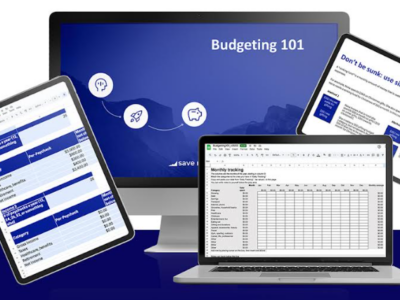Tomorrow (April 17) is the official deadline to file taxes in the United States without an extension. Assuming you have done the hard work of submitting, here’s what you can do to prepare for the next year, whether you file yourself or use a CPA / accountant.
Hold on to your tax returns and records
According to the IRS, you should keep your income tax returns for at least 3 years. This includes not just the tax return, but also the additional documents and forms that were submitted as part of your return.
Other records you should keep on hand for much longer, such as home-related records (at least 6 years after selling the home). (See FINRA for more guidance)
Digitize your records, keep them private
It is a good practice to keep digital copies of your financial information. However, treat your financial information like your social security number – don’t upload it to unsecured locations in the cloud, don’t freely email it, keep it offline if you can.
Make a check list of all the documents you needed this year
1099 forms, forms from banks, forms from retirement accounts, from loan providers, these all go into your tax return. Make a checklist of each form and institution you received this last year, and hold on to it for next year (I have a folder in my computer for each tax year, so this new check list goes into the year 2018). This way next year you would have a good idea of which forms to look out for. Was anything really hard for you to track this year? Make a note to diary it this coming year so you have better records.
Consider better tools to track your spending
It doesn’t matter WHICH tool you use, as long as the tool works for you. Save My Cents club members receive a proprietary excel sheet I designed (which each person then personalizes for themselves), and some people use online tools. I really could care less which tool you use, what is important is that this tool helps you achieve your goals.
Know your effective tax rate
A lot of budgeting and planning comes with knowing your tax rate, which you now should! Your effective rate is: ( Your gross income last year – federal, state, and local taxes ) / Your gross income last year. This can be a very helpful number to know whenever you are making estimates for the future.
This effective tax rate usually holds quite steady unless:
- You have a significant change in household income
- You move states
- You have another big event (e.g., home purchase / sale, investment sale, retirement, disability, having a child)
Determine whether you should have more or less taxes deducted from your paycheck
If you are a salaried employee, the W-4 form is a powerful tool to dial up or dial down your cash flow. Not sure how your paycheck works? Here’s an introductory post on interpreting paychecks.
There are a few ways to approach this. There is no right or wrong approach. Lots of financial advisors would say that you want to get your withholding to be as accurate as possible, but within a certain margin of error that you personally can bear, I think you can be fine.
- If you believe that you can get a lot of growth out of what you are doing, and are willing to hold a little bit of liability, you may want to increase your allowances and get more cash back to invest (e.g., you’ll likely owe the IRS money next year)
- If you believe that you need help saving money and having a savings account is not doing it for you, have the government withhold more taxes from you. This means that your paycheck is smaller, but you will likely receive money back next year as a refund to apply towards savings. A few Save My Cents club members actually use this method to save a few thousand dollars a year
You can always change your W-4 form throughout the year. For example, the year when I bought my first property I would get a mortgage interest rate deduction and needed cashflow badly. I increased my allowances to give me that cash.
Re-adjust your monthly budget
Your budget is a living, breathing document that should change as your understanding of your financial situation changes. Filing taxes is often an eye-opening event, take charge of this moment in time by re-examining your budget and setting more realistic goals. There is no point in setting really ambitious, unrealistic goals, because you will stop long before they become realized. Instead, give yourself the liberty and relaxation of having a budget that allows you to chip away at your goals, while also giving you room to be happy in the present.
Budgets are not supposed to be restricting – they are freeing. Budgets give you the freedom not to worry over where your money goes. Budgets give you the power to absolutely say which goals you can achieve. Budgets give you the opportunity to know which trade-offs to make in each month.
As I’ve learned over the years, I may not get everything I want all the time, but if I work slowly and surely, I will be able to achieve things I want to do over time.
Enjoyed this post? Keep in touch via my free online Facebook group
Get a personal view into my own financial journey on my Instagram @savemycents




